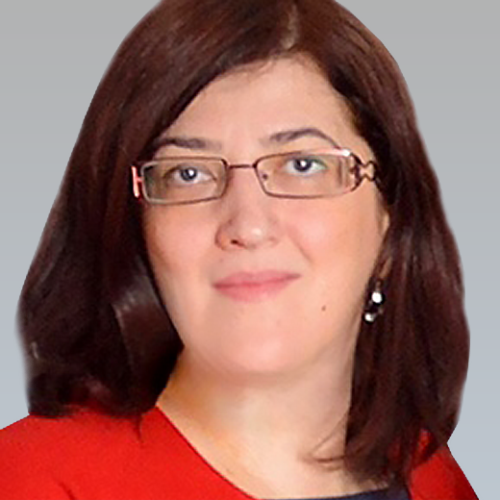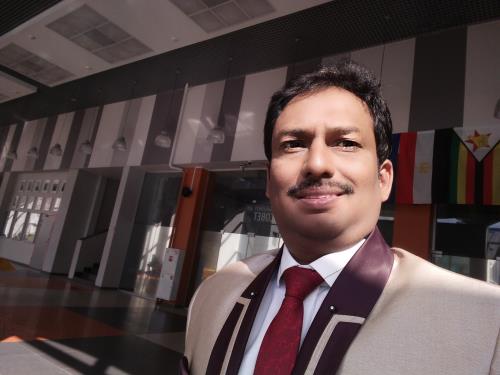Digital payments: Empowering Communities and Knowledge Economy-UPI applications Promote Digital Financial Inclusion.
ADA Lovelace Software Private Limited.
Session 362
Artificial Intelligence and Digital Financial Services
Digital financial services lower the cost and increase the security of sending, paying and receiving money. The resulting increase in financial inclusion which is also vital to women’s empowerment. It is most reliable, efficient and secure form of transaction. Digital Payments and UPI has showcased one of the classical examples in the creation of digital assets. It has given a Impetus to small businesses (Shops and street Vendors), large business and business of great impact enabling communities, for faster and secure transactions in subcontinent.
UPI demonstrated a great impact during the Covid-19 pandemic, a cashless and contactless transactions. In the subcontinent consumers from a layman to Tech savvy has adopted and shown great affinity towards Digital Technology, resulting in unprecedent growth in digital payment infrastructure which fosters economic development and Digital Financial Inclusion. In the thematic Workshop our primary aim to highlight how digital payments offer immediate benefits for both senders and receivers in developing economies.

He is a Innovative and rational thinker a youngest Director of GM Group of Companies. He is a Graduate Alumina of Purdue University Krannert School of Management, USA. Bachelor in Science-Economics and Finance. He is actively involved in the creation of new business model and go to market strategy. He leads a team of professionals and a good public speaker.

H.E. Maria-Manuela Catrina, Undersecretary of State, Deputy Director, National Cyber Security Directorate, Romania. she also served at various capacities in Romanian Government as State Secretary, Ministry of Communications and Information Society.
Ms. Maria Manuela Catrina has a background in mathematics, computer science, cybernetics. She has teaching experience in Computer Science at University of Sibiu. In the early 2000s. Ms Maria Manuela Catrina had the first opportunity to join the high levels of government as advisor for the Romanian Prime Minister, after which she continued as parliamentary advisor for Romania’s Chamber of Deputies.
As Secretary of State since 2017, she contributed to the complex preparations for Romania’s Presidency of the Council of the European Union. Her mandate includes broader aspects as well as more specialized areas of the Digital Agenda - such as cybersecurity, AI and robotics, also promoting women in tech. In addition to handling legislative files stemming from EU’s Digital Agenda within the Transport, Telecommunications and Energy Council, she also coordinates a number of high-level national groups tasked with ensuring the security and resilience of Romania’s IT and telecommunications infrastructure. Manuela Catrina began her political career in 1996 as a member of the Romanian Social Democratic Party.

He is the Director of ADA Lovelace Software Private Limited, Proven and Prospective company at Software Technological Park of India, STPI, Bangalore, INDIA. He is a Artificial Intelligence Researcher, Global connector, Academician and thought Leader with great experience in Software Product Engineering. He is a Vice Chairman- Capacity Building and Education- Multistakeholder Alliance on Information Communication Technology (ICTs) - Geneva, Switzerland.
He was a Election candidate for World Bank Civil Society Policy forum Elections-2022 from South Asia. He was Invited and actively participated in the 2021 Annual Meetings of the World Bank Group and IMF, Washington DC. Actively continued to engage in the discussions of 2022 Spring Meetings of the IMF and the World Bank Group. He mentored Women in Cyber Security- 2022 for small island counties, Land locked countries and Least Development countries.
He has International Certification in Promoting Access to Medical Technologies and Innovation- World Health Organization- WHO, WIPO, WTO Trilateral and Executive- Geneva, Switzerland. He has International Certification and Participated in Stakeholder Engagement for the Implementation of the UN Convention against Transnational Organized Crime (SE4U), Vienna, Austria.
He was a Delegate in SEADS-2022, Asian Development Bank (ADB)-Manila, Philippines. He has organized workshop in 2018, 2020, 2021 and 2022 at International Telecommunication Union (ITU)- United Nations Specialized Agency for ICTs-Geneva, Switzerland.
-
 C1. The role of governments and all stakeholders in the promotion of ICTs for development
C1. The role of governments and all stakeholders in the promotion of ICTs for development
-
 C2. Information and communication infrastructure
C2. Information and communication infrastructure
-
 C3. Access to information and knowledge
C3. Access to information and knowledge
-
 C5. Building confidence and security in use of ICTs
C5. Building confidence and security in use of ICTs
-
 C7. ICT applications: benefits in all aspects of life — E-government
C7. ICT applications: benefits in all aspects of life — E-government
-
 C7. ICT applications: benefits in all aspects of life — E-business
C7. ICT applications: benefits in all aspects of life — E-business
-
 C11. International and regional cooperation
C11. International and regional cooperation
-
 Goal 4: Ensure inclusive and equitable quality education and promote lifelong learning opportunities for all
Goal 4: Ensure inclusive and equitable quality education and promote lifelong learning opportunities for all
-
 Goal 5: Achieve gender equality and empower all women and girls
Goal 5: Achieve gender equality and empower all women and girls
-
 Goal 8: Promote inclusive and sustainable economic growth, employment and decent work for all
Goal 8: Promote inclusive and sustainable economic growth, employment and decent work for all
-
 Goal 10: Reduce inequality within and among countries
Goal 10: Reduce inequality within and among countries
-
 Goal 16: Promote just, peaceful and inclusive societies
Goal 16: Promote just, peaceful and inclusive societies
Digital financial services contribute to SDGs, by enabling access to essential services like health and education, empowering women with employment opportunities and reducing poverty by offering life-enhancing financial services. The United Nation’s 2030 Agenda for Sustainable Development is perhaps the most ambitious agenda on the planet. At the core of the agenda are the Sustainable Development Goals (SDGs), which aim to forge a better planet.
https://www.worldbank.org/en/publication/globalfindex
https://www.imf.org/en/News/Articles/2022/10/26/cf-how-indias-central-bank-helped-spur-a-digital-payments-boom